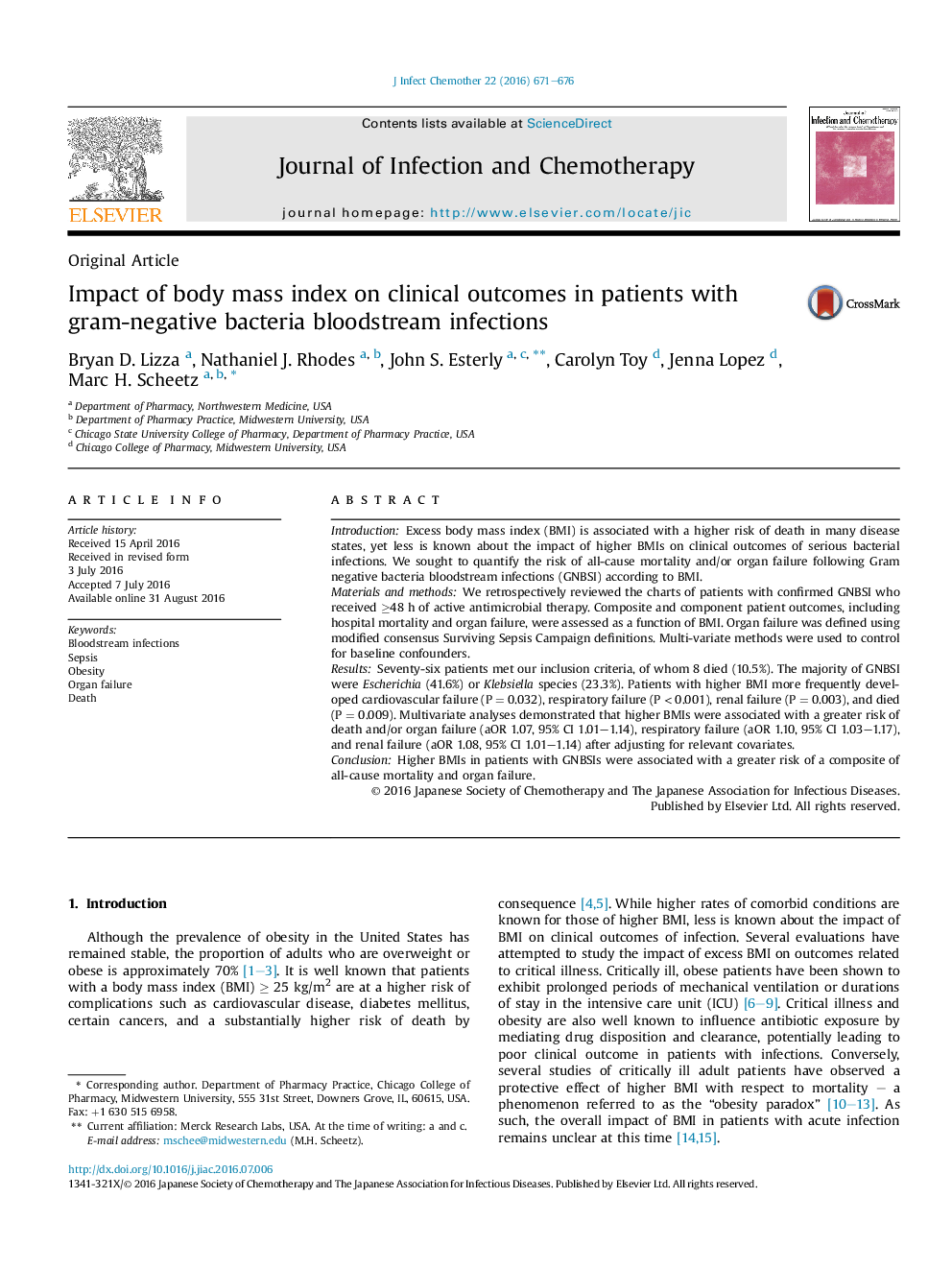| Article ID | Journal | Published Year | Pages | File Type |
|---|---|---|---|---|
| 5668968 | Journal of Infection and Chemotherapy | 2016 | 6 Pages |
IntroductionExcess body mass index (BMI) is associated with a higher risk of death in many disease states, yet less is known about the impact of higher BMIs on clinical outcomes of serious bacterial infections. We sought to quantify the risk of all-cause mortality and/or organ failure following Gram negative bacteria bloodstream infections (GNBSI) according to BMI.Materials and methodsWe retrospectively reviewed the charts of patients with confirmed GNBSI who received â¥48 h of active antimicrobial therapy. Composite and component patient outcomes, including hospital mortality and organ failure, were assessed as a function of BMI. Organ failure was defined using modified consensus Surviving Sepsis Campaign definitions. Multi-variate methods were used to control for baseline confounders.ResultsSeventy-six patients met our inclusion criteria, of whom 8 died (10.5%). The majority of GNBSI were Escherichia (41.6%) or Klebsiella species (23.3%). Patients with higher BMI more frequently developed cardiovascular failure (P = 0.032), respiratory failure (P < 0.001), renal failure (P = 0.003), and died (P = 0.009). Multivariate analyses demonstrated that higher BMIs were associated with a greater risk of death and/or organ failure (aOR 1.07, 95% CI 1.01-1.14), respiratory failure (aOR 1.10, 95% CI 1.03-1.17), and renal failure (aOR 1.08, 95% CI 1.01-1.14) after adjusting for relevant covariates.ConclusionHigher BMIs in patients with GNBSIs were associated with a greater risk of a composite of all-cause mortality and organ failure.
